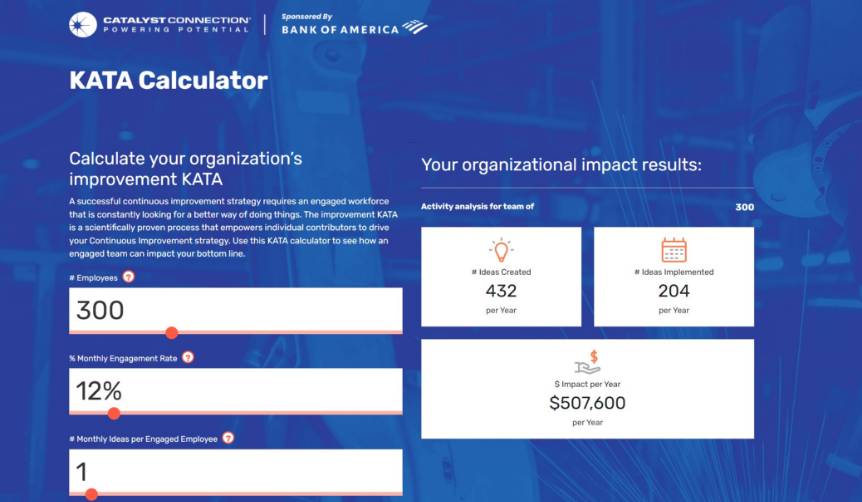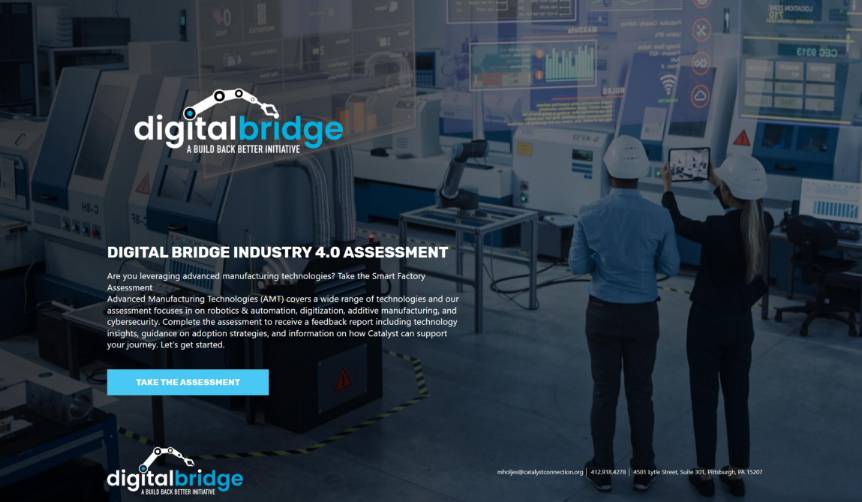KATA Calculator
You know the importance of implementing continuous improvement efforts across your organization, but do you know the ROI you’re getting for it? If the answer is no, you’re not alone. Very few manufacturers know the numbers. And often, the data is very subjective. Utilizing the 3 KPIs of Continuous Improvement (Engagement, Activity and Impact), Catalyst Connection has created a KATA calculator to help you build a sustainable continuous improvement…
Read MoreLean Forward: Lean Leadership for Your Organization’s Future
Lean leadership is all about commitment: commitment to your employees, commitment to the system and commitment to making changes towards improvement. Lean is all about eliminating waste through continuous improvement, and the most valuable resource a leader has available to understand where the waste is coming from is through the people that see it every day. Lean leadership is geared more towards working with your people rather than your…
Read MoreForge Ahead: Industry Insights for Manufacturers – Understanding GenZ
Gen Z is entering the workforce. To no surprise, this generation of movers and shakers is ready to make their impact on the world, and they’re already starting with the future of work. Attracting Gen Z talent to the workplace is now requiring businesses to reevaluate their current practices and offerings to stay competitive in a fierce Employee’s Market. To give companies a head start, this paper provides a…
Read MoreDigital Bridge Industry 4.0 Assessment
Are you leveraging advanced manufacturing technologies? Take the Smart Factory Assessment Advanced Manufacturing Technologies (AMT) covers a wide range of technologies and our assessment focuses in on robotics and automation, digitization, additive manufacturing, and cybersecurity. Complete the assessment to receive a feedback report including technology insights, guidance on adoption strategies, and information on how Catalyst can support your journey. Let’s get started.
Read More


